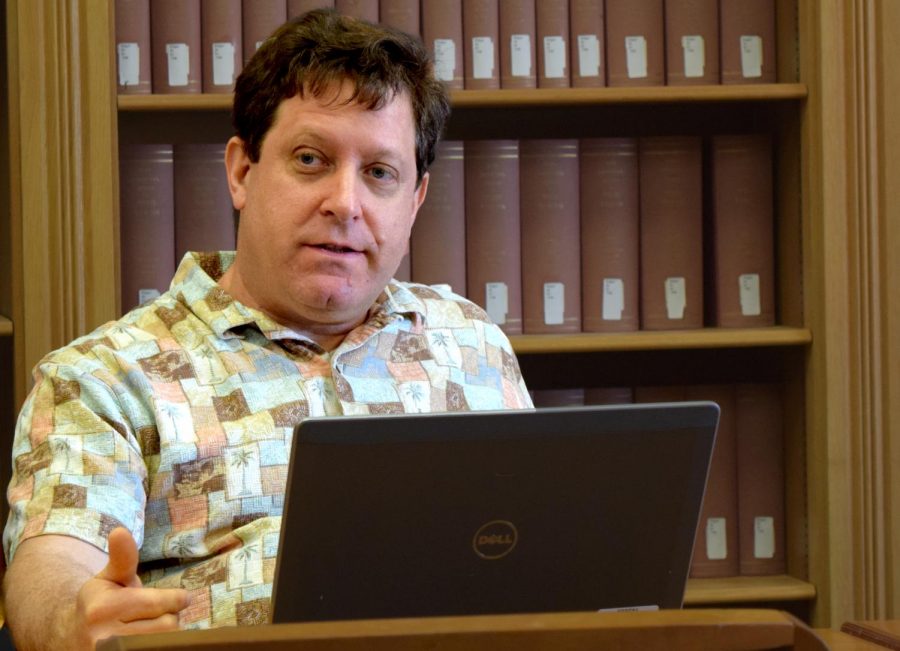CAA looks at accelerated law degree
Geography professor Barry Kronenfeld is a member of the Council for Academic Affairs. The council approved lowering two course numbers for the computer and information technology department, and it also looked at an accelerated law degree program.
April 5, 2018
An accelerated law degree was presented to the Council on Academic Affairs at its meeting on Thursday.
The proposal was presented by political science professor Karen Swenson, who said the program was in line with what other universities are doing.
“The idea of having an accelerated law degree undergraduate program is trendy,” Swenson said. “So I approached Northern Illinois University, out of respect for that law school, and they were very receptive to the idea of partnering with us.”
The accelerated law degree would include three years at Eastern, where the student would complete general education requirements and requirements for a political science major, and then move to Northern, where students would be granted their bachelor’s in political science after their first year of law school there.
Swenson said the program would be used by a few very focused students who need more help with advising than with general education courses.
Because this was not a new major, the council was not sure exactly what they were voting on. The proposal was tabled until Swenson could bring them a list of Eastern’s degree rules that CAA would have to vote on to waive for this program.
Two computer and information technology programs, Introduction to Programming and Operating Systems for Computer Technology, were revised at the meeting as well.
Toqeer Israr, an assistant computer and information technology professor, said the programs were having their numbers lowered so the content matched the level of knowledge students have.
The courses, before 3000 and 4000 level courses, are now a 1000 and 2000 level course, which more matches the introductory tone to each of the course’s curriculums.
These changes were unanimously passed.
CAA chair Stacey Ruholl, a kinesiology and sports studies professor, updated the committee on the shared governance plan that has been floating around.
Psychology professor Jeff Stowell, who helped draft the plan and has been bringing it around to various committees, found many people were not excited about creating a bigger Faculty Senate.
In a shared governance meeting Thursday with Ruholl, Stowell said he is going to look at changing the plan so committees stay roughly the same size but communication is increased.
The new plan would include senators who were voting members of the various committees on campus, who would then report back to the senate about their committee’s actions.
Ruholl said she liked this new approach to shared governance.
“(The new model is) less about ‘(we, the senate) have oversight’ and more about ‘we want to get involved and get information,’ which sounds a lot better to me,” Ruholl said.
Brooke Schwartz can be reached at 581-2812 or at [email protected].




















































